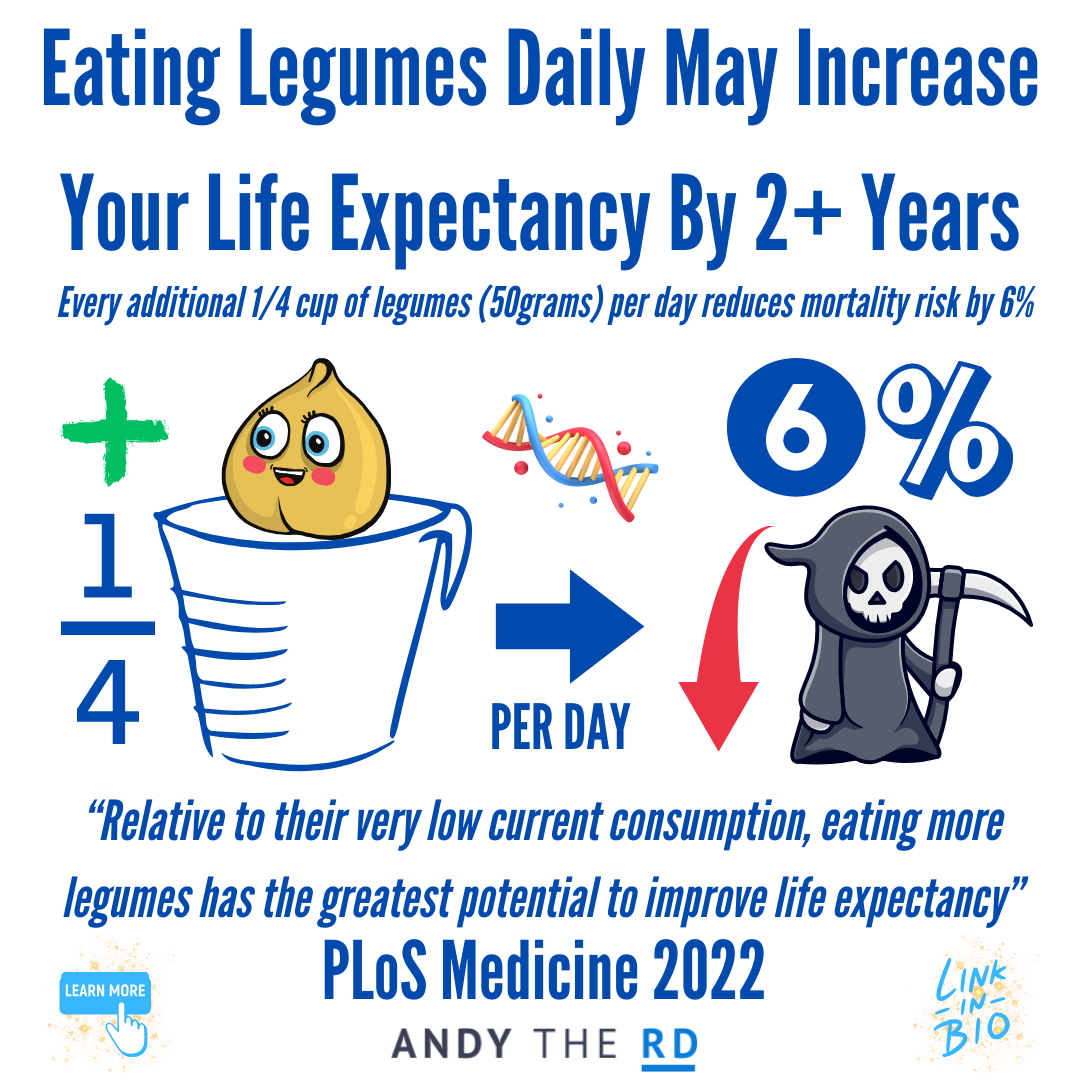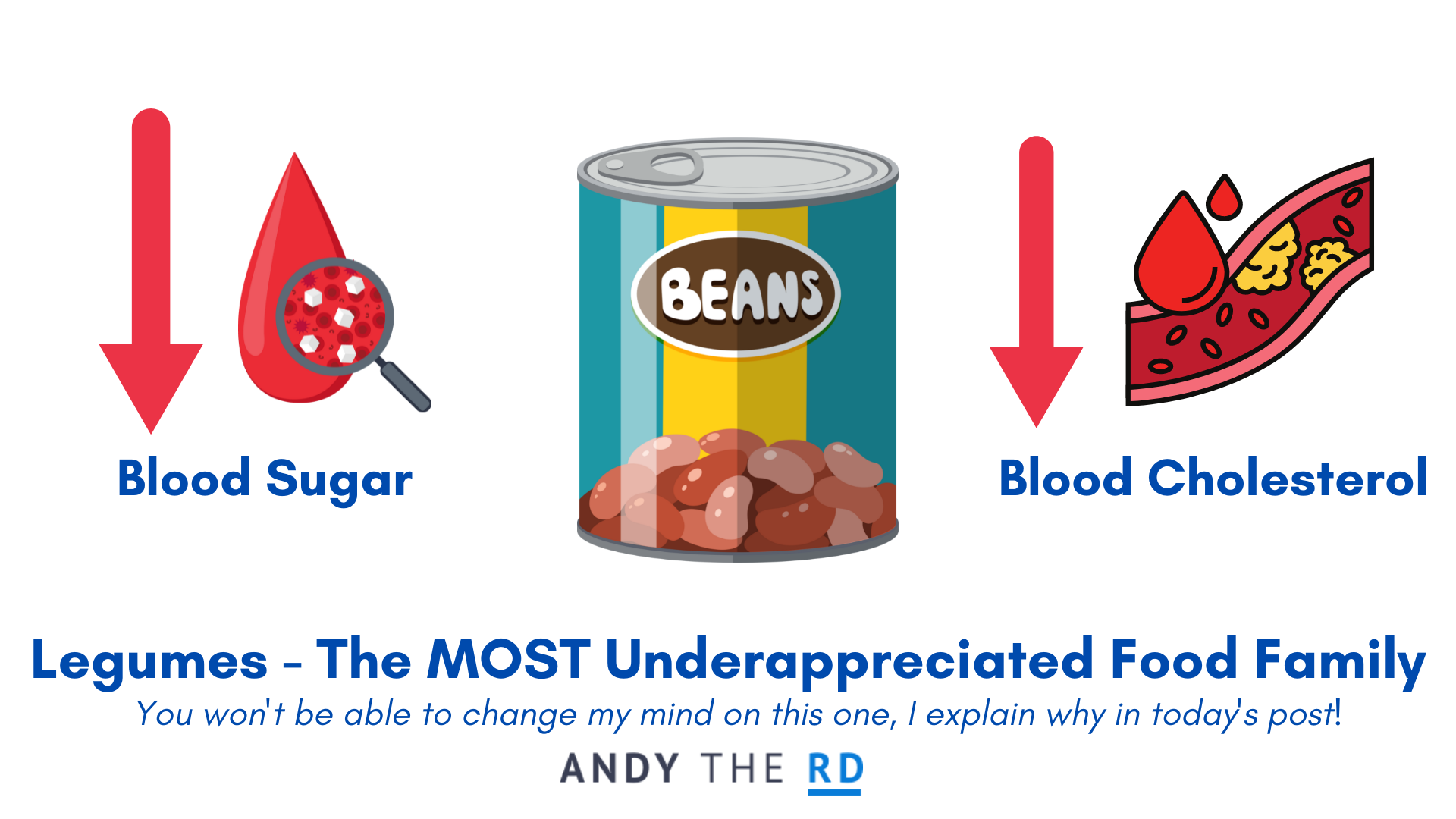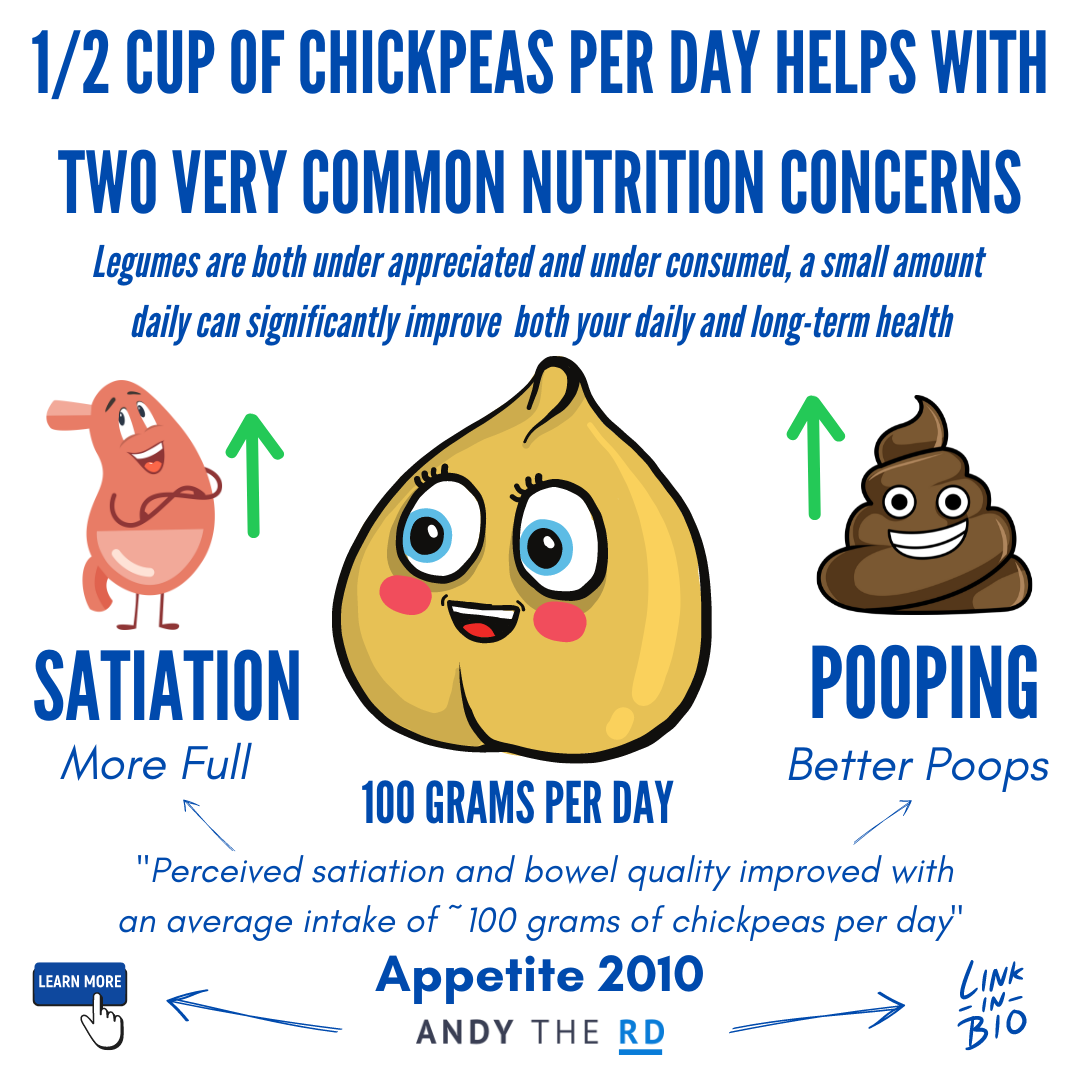I’m of the opinion that legumes are the most underrated and underappreciated food group.
Once you are done reading today’s article, you will understand why.
Legumes are a family of foods which includes notable memories like lentils, chickpeas, kidney beans, edamame, fava beans and other members.
Why Are Legumes SO Underrated?
For me to identify as food group as “underrated” there are certain conditions that need to be met.
These are;
Consumption is low relative to nutritional value
Data suggests that on any given day only 13% of Canadians consume legumes and that about 80% of Canadian consumers are held back by consuming pulses either through disinterest, lack of habit or more likely not quite knowing what to do with them to make them taste good ( we will come back to this point later)
Perceived benefit is low relative to actual benefit:
Only 2 in 3 Canadians surveyed “strongly agreed” that legumes were nutritious – which tells me there is an understanding gap in this regard. Coupling these survey findings with my own professional experience, which equates to clients often being surprised by me emphasizing the importance of this food group, speaks to the fact that perceived benefit of legume intake is also lacking.
Four Major Benefits Of Legume Intake
Of course the next argument I need to make to convince you that legumes are “underrated” is to offer up some evidence of their incredible nutritional value.
Let’s take a closer look at some key points in this regard;
1. Legumes Are Ultra Satiating
Legumes are unique in the sense that they are high in both fibre and protein. While many foods exit that are high in fibre, and many foods exist that are high in protein, only legumes contain both in significant quantities. Protein and fibre are the two components of foods most responsible for keeping us satiated and so its perhaps unsurprising that studies have demonstrated that legumes are actually more satiating than an equivalent amount of red meat.
2. Legumes Lower Cholesterol
Legumes aren’t just high in fibre, they are high in a specific type of fibre that is exceptionally useful from the physiological perspective. Soluble fibre, as it is known, is very effective at lowering cholesterol levels and this is such an important consideration because here in Canada cholesterol lowering medication is among the most frequently prescribed pharmaceutical. In fact, soluble fibre is so important to cholesterol lowering that it is considered a fundamental feature of Toronto-based researcher Dr David Jenkin’s cholesterol lowering dietary strategy (learn more here).
3. Legumes Help Prevent & Manage Type 2 Diabetes:
Soluble fibre is good for more than just cholesterol lowering, it also slows down the movement of food through our digestive tract which helps led to a slower more natural blood sugar response.
For this reason, among others, it has been demonstrated that consuming about 5 cups of cooked legumes per week can significantly improve markers of blood sugar control in those living with diabetes.
It doesn’t stop there though, swapping in ½ cup of legumes for a similar quantity of rice or potatoes on a daily basis has been demonstrated to lower type 2 diabetes risk in those who don’t already have it.
4. Legumes Are High In Nutrients Canadians Fall Short In:
On a population level zinc and magnesium are two of a group of nutrients that may be at higher risk of underconsumption.
Both of these nutrients are important and garner a great deal of scientific spotlight, a point hammered home by the fact they are both present in the top 10 selling supplements list on Amazon.ca.
Perhaps unsurprisingly, studies have demonstrated that individuals who consume legumes more regularly have better overall intakes of these important nutrients.
Not to mention the fact that legumes are also exceptional sources of other nutrients of concern including calcium, potassium and dietary fibre.
Calcium and potassium play a unique role in helping manage blood pressure (which is the #1 reason for a medication prescription in Canada) whereas calcium and fibre may work in tandem to reduce colorectal cancer risk (the third most common form of cancer and the type of cancer with perhaps the strongest dietary link).
Let’s Get More Legumes In Your Life
It is quite clear that legumes benefits manifest both in terms of health in the short and long-term.
Need help learning how to incorporate more legumes and other key foods into your diet in a fun and functional way?
I’d love to help, so do reach out to discuss working together if you need guidance and support in this area.
Until then,
Andy De Santis RD MPH







